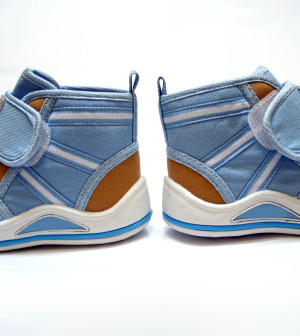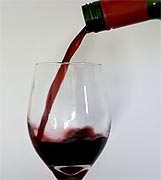- Could Artificial Sweeteners Be Aging the Brain Faster?
- Techniques for Soothing Your Nervous System
- Does the Water in Your House Smell Funny? Here’s Why
- Can a Daily Dose of Apple Cider Vinegar Actually Aid Weight Loss?
- 6 Health Beverages That Can Actually Spike Your Blood Sugar
- Treatment Options for Social Anxiety Disorder
- Understanding the Connection Between Anxiety and Depression
- How Daily Prunes Can Influence Cholesterol and Inflammation
- When to Take B12 for Better Absorption and Energy
- Epsom Salts: Health Benefits and Uses
Letting Kids Sip Alcohol May ‘Send Wrong Message’


Children who are allowed occasional sips of alcohol are more likely to start drinking by the time they’re in high school, a new study suggests.
Researchers followed 561 middle school students in Rhode Island for about three years. At the start of sixth grade (about age 11), nearly 30 percent of the students said they’d had at least one sip of alcohol.
In most cases, those sips were provided by parents, often at parties or special occasions.
By ninth grade, 26 percent of those who’d had sips of alcohol at a younger age said they’d had at least one full alcoholic drink, compared with less than 6 percent of those who didn’t get sips of alcohol when younger.
The researchers also found that 9 percent of the sippers had gotten drunk or engaged in binge drinking by ninth grade, compared with just under 2 percent of the non-sippers.
The study was published March 31 in the Journal of Studies on Alcohol and Drugs.
The findings don’t prove that sips of alcohol at an early age are to blame for teen drinking, said lead researcher Kristina Jackson, of Brown University’s Center for Alcohol and Addiction Studies, in Providence, R.I.
“We’re not trying to say whether it’s ‘OK’ or ‘not OK’ for parents to allow this,” Jackson said in a journal news release.
She noted that some parents believe that introducing children to alcohol at home teaches them about responsible drinking and reduces the appeal of alcohol.
“Our study provides evidence to the contrary,” Jackson said.
Giving sips of alcohol to young children may send them a “mixed message,” she suggested.
“At that age, some kids may have difficulty understanding the difference between a sip of wine and having a full beer,” Jackson said.
More information
The U.S. Substance Abuse and Mental Health Services Administration discusses how to prevent your child from drinking.
Source: HealthDay
Copyright © 2026 HealthDay. All rights reserved.










